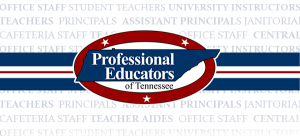The push for universal vouchers in Tennessee is flawed at this time and fiscally questionable. This proposed legislation, as planned by Governor Lee, is not income-tested and does not specifically target the lowest-income students in the worst public schools. It will give taxpayer money to wealthy families with children already in private schools. This will not improve public schools if that is the stated goal.
Without limits or caps, it could create another large entitlement program in our state, when Tennessee taxpayers can least afford it. As Ronald Reagan reminded us: “Government does not solve problems; it subsidizes them.”
The legislative process for this legislation should not be rushed. There is no bill currently filed on universal vouchers to review. As described, Governor Lee has indicated money will come from a separate part of the budget. His proposed universal vouchers will be a subsidy, creating another separate school system, in which Tennessee taxpayers will bear the cost to support. As government growth increases, liberty decreases.
Education policies are shaped by political, social, economic, and cultural dynamics, and finding common ground amid these complexities is a continual challenge. If this effort were on a statewide ballot initiative, it would fail. Tennessee has out-of-state funding driving state policies --- including education. That is why Tennesseans must drive the universal voucher debate.
Policymakers and stakeholders need to merely look at the similarities between Lee’s proposal and the unintended consequences in Arizona. They estimated spending at about $64 million and grew to about $900 million this year, 1,400 percent higher than initially projected. We know that state revenue is down, and growth in government spending has increased in Tennessee in the last decade. Our state must repeal our unconstitutional excise and franchise tax this year, which could easily cost $1 billion to $1.4 billion. Now is not the time to grow government.
There are legitimate questions about the capacity of private schools to further accommodate voucher students, admission fairness, transportation planning, and evaluating student progress. Even Tennessee Education Commissioner Lizzette Reynolds expressed disappointment about the state test scores of students using ESA vouchers for private schools in Shelby and Davidson counties.
Before the government introduces a new universal voucher program, it is essential to establish clear and transparent mechanisms for evaluating the program's effectiveness. The potential for fraud and lack of controls must be addressed by implementing measures to ensure accountability and prevent misuse of taxpayer funds. All people or schools receiving public funds must be transparent and accountable for how they use these funds. Results must be measurable, like their public school counterparts.
Policymakers should insist on actual proof of residency, as well as verification. Tennesseans recall the fraud as our state launched TennCare and the out-of-state people who took advantage of that program.
It is crucial to demand evidence of Tennessee's Education Savings Account Pilot Program's success before further expansion of any voucher program. Even supporters should want that data and make necessary changes before expansion to universal vouchers. In Indiana, voucher schools must administer the state test and report to the state data for A–F ratings, including state assessment scores and graduation rates. Should that also be included in any legislation?
American political commentator, entrepreneur, author, and talk show host Armstrong Williams wrote: “Let's remember the children who come from broken homes, surrounded by crime, drugs, temptation, their peers having babies out of wedlock, but who still manage to get a good education despite the many obstacles they face every day.”
Public education has problems and issues that need to be confronted and challenged. No school or system is perfect. No one-size-fits-all solution works for every problem, nor is every school the right fit for every child. However, it is also unrealistic to assume that a universal voucher program would not potentially lead to re-segregation in our schools along religious, racial, economic, and ability/disability lines without the correct policies in place on the front end.
There are good people on every side of any debate. There are also opportunists. And when it comes to children, people are passionate. Improving public education for the benefit of all children must be our focus. An informed and educated population is crucial for our state and nation. Policymakers should also embrace other forms of school choice already existing within our state. Especially those with demonstrated success.
##
JC Bowman is the Executive Director of Professional Educators of Tennessee, a non-partisan teacher association in Nashville, Tennessee.











